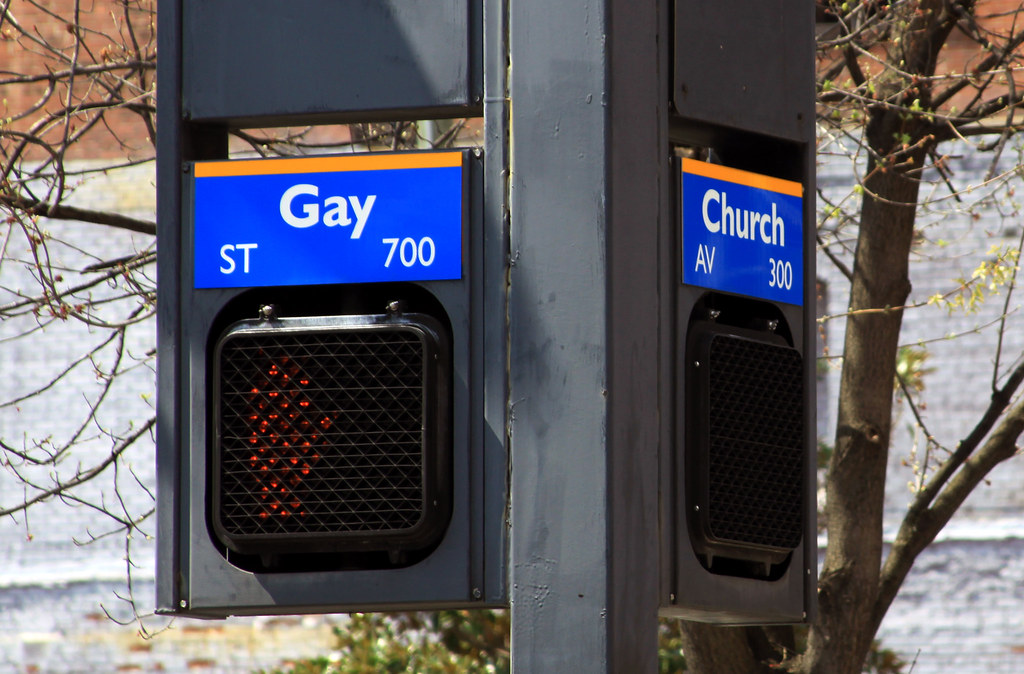A few months ago I was part of a Veritas planning team to bring in a speaker to our campus. (If you haven't heard of Veritas, it's a great Christian scholastic organization.) We brought in a eminent early Christianity scholar to talk with one of our religious studies professors about the creation of the idea of the "heretic" in Late Antiquity. He was a wonderful speaker. We also asked him to speak to Christian students about being a Christian academic and how to balance the two. This speaker, whom I helped bring to campus and whom I genuinely like as a human being, humanitarian and scholar, announced to a room of my colleagues that some moral issues are universally recognized as critical to the Church, like abortion and gay marriage, and that he had therefore signed the Manhattan Declaration as a result. He implicitly suggested that we as good Christians and role models should do the same. I flinched.
The truth is, even though I'm an evangelical Christian for the most part (I do have some liturgical tendencies), I'm no real fan of The Manhattan Declaration. If you haven't heard of it, this is a religious manifesto created, in their own words, "in defense of the sanctity of life, traditional marriage, and religious liberty. It issues a clarion call to Christians to adhere firmly to their convictions in these three areas." I was originally interested in it because this is the first time in a while that I've seen Orthodox, Catholic, Baptist and Charismatic Christians of every stripe actually agree on something.
Normally, I'm a huge fan of such ecumenical movements because 1) I don't believe in divisions in the body of Christ and 2) I spent six years in a denomination where the lion's share of its members doubted whether any the other denominations were actually Christians. But this brand of ecumenism... well, I'm not sure I like this one. On the one hand, I am a firm pro-lifer (with reservations about approach) and I'm a huge proponent of religious freedom for all faiths.
But then there's that third tenet: the "defense of traditional marriage." As you all doubtlessly know, I find myself stuck between the two main communities on this one. On the one hand, I am a straight evangelical. I know what the traditional interpretations of Scripture says on this one, and that's something I'm still struggling to understand for myself, and the more I do, the more I find myself on the other side of the issue from my compatriots. On the other hand, I know intimately the degree to which the Christian moral conviction against sexual sin is really a veil over a deep-rooted homophobia. I've seen it. That's why I'm actively participating in our local LGBTA and trying to get my co-religionists to realize that they have a moral obligation to reach out to the LGBT community with love, compassion, and acceptance no differently than we're supposed to be doing to the rest of the world. And I firmly believe that the church as a whole needs to reach out to the gay community to ask for forgiveness for our sins against them. The most horrible "coming out" stories I've heard nearly always come from the most zealous Christian families and congregations.
Secondly, I don't like the entire premise of their argument, their reason for drafting the declaration, and the assumptions it makes. It's based upon a premise that I simply can't accept, Biblically speaking, and one that has been bothering me for quite a while now, long before I'd heard of the Declaration. Besides, I think it odd that Christians who can't even always agree on the first seven councils of the Church can all agree that gay people shouldn't get married. So, we can't even agree on the procession of the Holy Spirit or the nature of the Trinity, but we can all agree that we don't like gay couples?! There seems to be a strange disconnect here with the Manhattan Declaration and the relationship between God and society they create, so that's what I want to spend some time thinking about for a few posts as I work on some more material for TLP.
Calling all Theater companies and performers!
Open Call to Theater companies, performers, researchers:
I would like to hear other voices besides my own on this blog. If you'd like to write about your TLP experiences here, e-mail them to me and I'll put them up.
Topics can include dramaturgy to staging to personal responses to the play. Anything goes!
I would like to hear other voices besides my own on this blog. If you'd like to write about your TLP experiences here, e-mail them to me and I'll put them up.
Topics can include dramaturgy to staging to personal responses to the play. Anything goes!
Saturday, June 5, 2010
Uncivil Unions: Why This Jesus-Lover Didn't Sign the Manhattan Declaration
Labels:
Christianity,
ethics,
faith,
gay marriage,
GLBT,
Manhattan Declaration,
stereotypes
Subscribe to:
Post Comments (Atom)



No comments:
Post a Comment